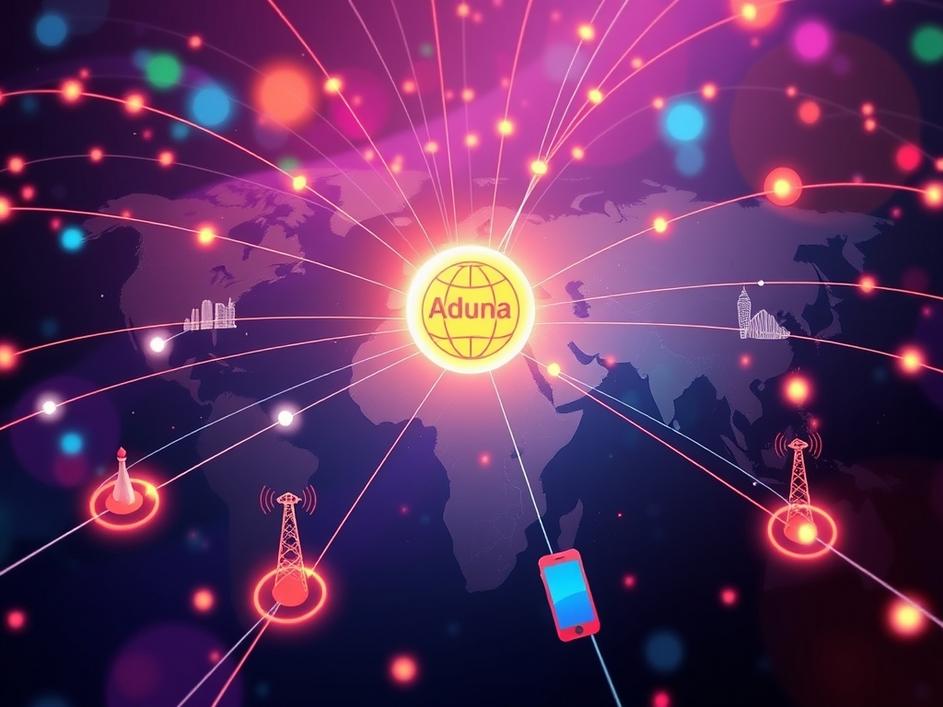


We are a digital agency helping businesses develop immersive, engaging, and user-focused web, app, and software solutions.
2310 Mira Vista Ave
Montrose, CA 91020
2500+ reviews based on client feedback

What's Included?
ToggleImagine building a new app or online service. You want it to do smart things, like confirm a user’s phone number quickly, send a special text message, or even understand if a phone is currently active. For a long time, tapping into these kinds of features directly from phone company networks was, well, a bit like trying to find a secret door without a map. Each phone company had its own way of doing things, often complicated and hard to connect with. But now, something big is happening that aims to change all that, especially across the Middle East, North Africa, and beyond. Ooredoo Group, a major phone company, has teamed up with Aduna, which is like a central hub for these network connections. Together, they are making it much simpler for developers and businesses to use the powerful features hidden inside our phone networks. It means more innovative apps and smoother digital services for all of us, without the old headaches.
Before this kind of partnership, if you were a developer wanting to use a phone network’s features – let’s say, confirming a delivery address by checking a customer’s phone signal – you’d have to build a specific connection for each phone company in every country. Think of it like needing a different plug and socket for every electrical appliance you own, depending on where it was made. It was slow, expensive, and a real barrier for smaller companies trying to expand their services across different regions. This is where Aduna steps in. They act like a universal adapter, or a single switchboard. Instead of building countless direct connections, businesses can now connect to Aduna just once. Then, Aduna handles talking to Ooredoo and other phone companies, standardizing everything. This cuts down on a lot of repetitive work and means new services can be rolled out much faster and more widely, which is a huge deal for anyone trying to innovate in the digital space.
So, what exactly does Aduna do here? You can think of Aduna as a central market or a library where different phone companies, like Ooredoo, list their network capabilities. These capabilities are offered as “APIs,” which are essentially standard ways for computer programs to talk to each other. Ooredoo makes its APIs available through Aduna. This means a developer anywhere in the world who wants to build an app that needs to interact with a phone network doesn’t have to go directly to Ooredoo and figure out their unique system. Instead, they go to Aduna, which provides a single, easy-to-use interface. Aduna takes care of all the complex technical details behind the scenes. This simplifies things so much that developers can spend less time struggling with different network systems and more time actually building cool, useful features into their apps. It truly creates a more open and connected digital ecosystem where ideas can grow faster.
The real winners here are businesses and, indirectly, us, the users. For businesses, especially startups and those looking to grow, this partnership removes a huge hurdle. Imagine a delivery company that needs to verify customer numbers instantly, or an online bank that wants to add an extra layer of security using a customer’s phone network identity. In the past, these kinds of features were complex and costly to implement across multiple countries. Now, with simplified access to Ooredoo’s network features through Aduna, these businesses can build more reliable, secure, and smart services much more easily. This means new apps could offer better fraud protection, more accurate delivery updates, or more personalized customer experiences. It’s about making the digital world work more smoothly and securely behind the scenes, so our everyday interactions with technology become more helpful and less frustrating. We might not see the APIs directly, but we’ll definitely feel the improved services.
For Ooredoo, this partnership is a very smart strategic step. By opening up their network features in a standardized way, they are not just being a phone company anymore; they are becoming an enabler of innovation. They are positioning themselves at the heart of the digital economy, inviting developers and businesses to build *on top* of their network, rather than just using it for basic calls and data. This can open up new revenue streams and keep Ooredoo relevant in a rapidly changing tech world. Furthermore, the focus on the MENA (Middle East and North Africa) region is incredibly important. This area is experiencing a huge digital transformation, with many young, tech-savvy populations and a growing number of startups. By making it easier for these businesses to connect to robust network services, Ooredoo and Aduna are directly fueling this digital boom, helping local innovations reach a global scale and bringing the MENA region further into the global digital spotlight. It shows a forward-thinking approach that recognizes the future of telecoms isn’t just about providing connections, but about providing platforms for others to build upon.
This collaboration between Ooredoo and Aduna is more than just a technical agreement; it’s a clear signal of where the telecommunications industry is headed. We are moving towards a world where the powerful capabilities of phone networks are no longer locked away behind complex, proprietary systems. Instead, they are being offered as easy-to-use building blocks for anyone with a good idea. This “network as a service” model means that innovation can happen much faster and from many more places. It means a small startup in a vibrant city in the MENA region could build a service that uses Ooredoo’s network capabilities just as easily as a large tech company. This kind of open access and standardization is essential for a truly interconnected global digital economy. It suggests a future where our digital experiences are not limited by the complexity of underlying infrastructure, but rather empowered by its accessibility.
So, when we look at Ooredoo Group partnering with Aduna, we’re seeing more than just a business deal. We’re seeing a fundamental shift in how phone networks are used and perceived. This move makes the advanced features of a network accessible to a wider audience of innovators, speeding up how new apps and services come to life. It helps businesses grow faster, especially in dynamic regions like MENA, and it promises to make our digital lives smoother, more secure, and more interesting. By simplifying these vital connections, Ooredoo and Aduna are not just building bridges for data; they are building pathways for creativity and progress, making the vast power of our phone networks available to shape a more connected and innovative future for everyone.



Comments are closed